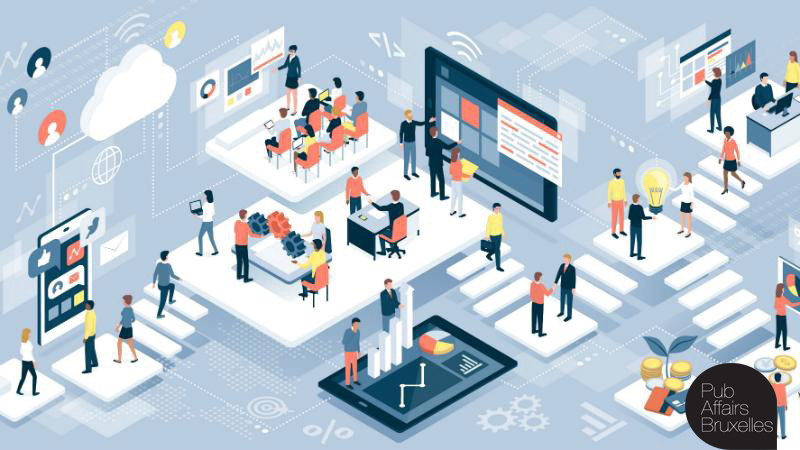We are most pleased to invite you to participate in an evening of discussion on how Europe could create jobs during the COVID recovery through the transformation of work with our distinguished speakers:
- Mr Antoine Kasel, Head of Commissioner Schmit Cabinet, European Commission;
- Ms Yana Toom MEP (Renew Europe/EE);
- Mr Mark Keese, Head of the Skills and Employability, OECD;
- Mr Menno Bart, Public Affairs Manager, Adecco;
- Mr Stefan Kröpfl, Global Head of Life Business Analysis, Zurich Insurance;
- Mr Russell Corbould-Warren, Head of Insurance, Uber EMEA.
The debate will be moderated by Laura Shields, Founder and Managing Director, Red Thread.
This event will be held under the Chatham House Rule.
Given the current developments regarding the Covid-19 outbreak, our event series is held in streaming.
This event is kindly sponsored by
In partnership with
About the debate
The nature, forms and organisation of work have been constantly transformed by technological progress, demographic shifts, the conditions of the labour market, and macroeconomic variables. While this paradigm also applies to contemporary global society, the technological factor, along with the sustainability imperative, requires all actors of society to adapt and reshape their respective established cultural and organisational references. These changes may not be as fast or as deep as some observers might suggest, however, it is clear that there are ongoing shifts towards more diverse and broader concepts of work both within Europe and around the world.
As highlighted by the European Commission, full-time employment with a permanent contract had become the norm in the 20th century. However, more and more people shift to other types of work in search of more opportunities to work and flexibility. For example, a study conducted by the Oxford Martin School of the University of Oxford demonstrated that more than 80% of drivers operating on the Uber would prefer to remain independent contractors rather than be classified as an employee. Within this context, European social, political and economic institutions, which have established their respective objectives and operational frameworks after the middle of the last century, have become increasingly confronted with the question of how to adapt to the changing nature of work and ensure adequate social protection and rights for all types of work.
The Internet and the spread of digital technologies, apps and online platforms are notably accelerating the transformation in how citizens work and live, as well as how businesses are organizing their tasks. The looming unemployment crisis could last for years. Diverse forms of employment, including independent work, can be a way to introduce people back in the labour market and will continue to grow as salaried employment becomes scarce. The COVID crisis demonstrated that the social protection schemes within the Member States are often not fit for these diverse forms of work, thus the workers fall through the cracks of the system due to the difficulty of categorizing them.
As a result, in order to keep up with the pace of the technological and societal shifts brought about by digitisation, and address the critical changes that the financial crisis stemming from the global pandemic brings, it will be crucial to ensure that the challenges emerging from this process are translated into opportunities to offer the widest range of sustainable options to businesses, workers and society as a whole. Indeed, the challenge which lies ahead for Europe consists of helping the whole business environment to transform in order to succeed in the digital age, while finding ways to maintain and adapt the European social model.
The event will commence at 6.00 pm and it will be held in streaming. After the panel debate there will be an opportunity for questions and discussions.
We look forward to hosting you at 6.00 pm on the 10th of June 2020


